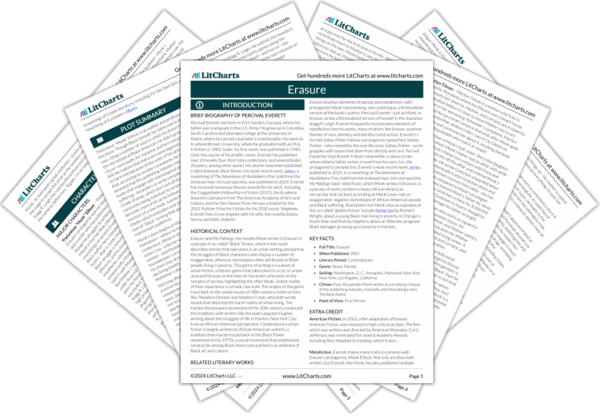The story of Van Go Jenkins relies on exaggerated stereotypes of Black struggle—Van Go’s name (a phonetic misspelling of Van Gogh) suggests his (high-brow) cultural illiteracy and his lacking formal education, for instance. Also notable is the foregrounding of gratuitous violence. Stereotypes like these are common fixtures in the “ghetto” literature Monk hates. Notably, Van Go’s story closely resembles the plot of Richard Wright’s
Native Son. At the same time, the reader can’t help but see Monk’s ongoing troubles with Mother in Go’s simultaneous “love” and “hate” for Mama. It’s clear, then, that Monk is using
My Pafology to work through some of his real ongoing issues, however feigned or satirical the plot of the story may be.
